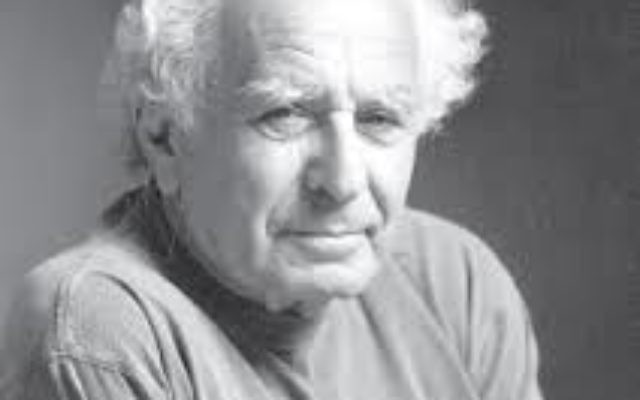We Need Jewish Moms
By Eugen Schoenfeld
The congregation was overflowing the sanctuary — standing room only — and people were quieting down as the young bat mitzvah standing on the bimah began chanting Ma Tovu. The service was routine, like any other Shabbat, except much louder.
Indeed, it was a service of rov aam, a multitude of people, and jointly we entered into the spirit of hadrath melech, honoring both the king and the Shabbat.
It was Parshat Zachor, the week before Purim, and a special Torah reading reminded us that throughout our history evil persons rose up against us and sought our destruction. But today a great part of the destruction of Jews is, unfortunately, self-destruction: Jews who reject their identity and our spirit.
As the Torah was read — the chapter was Vayikra, the beginning of the Book of Leviticus — a ray of hope entered into my old heart, and I believed that maybe our renaissance was possible.
A few young men and an equal number of women read the Torah. How sweet were their voices.
To my surprise, the quality of the chanting by the women exceeded the men. They read the text almost flawlessly, hardly missing a word or a trope.
I wondered: Could it be that such women with greater knowledge of Judaism, with a greater sense of spiritualism, could reverse the trend of declining Judaism?
Perhaps the loss of spirituality in our homes, especially Jewish spirituality, was exacerbated by our traditional belief that women should not be educated in Yiddishkeit more than rudimentary knowledge of ritual, mostly pertaining to home and cooking.
The Jewish view has maintained that the home is the center of the spirit and has subsumed the spirit of the Temple that was destroyed two millennia ago. Is it possible that we failed to prepare our young women, who by nature are more likely to express love, with the knowledge that they could teach that love to their children?
The need for spirituality in the home is essential to the well-being of the individual and of our people as a whole. When Isaac married Rebecca, he brought her into the tent of his mother, Sarah, and the Torah text tells us he “found comfort after his mother’s death.”
Rephrasing Rashi’s comment, I propose that Rebecca brought back the customs, ceremonies and spirituality that ceased after Sarah’s death, and when that spirituality was restored, Isaac found comfort and was consoled.
Proverbs 31 declares the importance of a good wife and a mother’s contribution to the well-being of the family and the household. We are also told in Proverbs that children should listen to their father’s teaching and not forsake their mother’s instruction.
It is the wife and mother who is most likely to determine the family’s religious life and spirituality and thus influence her children’s maintenance of their Jewish identity. In addition to knowledge and reason, the mother imparts a sense of feeling and love. The knowledgeable Jewish mother inculcates in her children love and appreciation for Judaism.
This duality — knowledge and feeling — is exemplified in the Jewish description of G-d’s nature as androgynous — both male and female. On the one hand G-d is male: the king, the warrior, the Lord of hosts, the judge who punishes us. On the other hand, G-d has feminine qualities reflected in the shechinah, site of G-d’s love, mercy and forgiveness.
This duality is mirrored in the structure of the Talmud, which contains the masculine logical side of the law and a feminine side, the legends the agadoth.
In short, collective human life cannot exist by laws alone. We need the purity and the severity of the law, but we cannot exist unless it is mitigated by G-d’s love and mercy.
This duality must also be central to human relationships: the reason of father and love of mother. The home cannot exist without a mame and a tate, but we need a special mame: a Yiddishe mame. She is the one who infuses into us a lifelong love for Judaism.
I know: The strength and trust necessary for me to overcome the harshness of life and maintain stability after the Holocaust were gifts of my Yiddishe mame. Strength and dignity were my mame’s clothing, and she taught me to be unafraid of the times to come.





comments